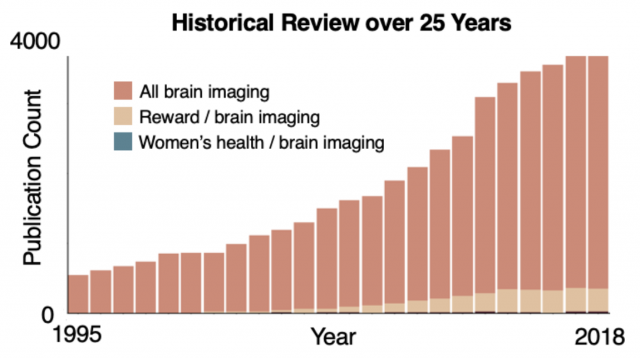New review in Frontiers in Neuroendocrinology
Advances in brain imaging techniques over the past 20 years have given us unprecedented insight into the human brain. Yet the field has overlooked how the brain responds to major changes in sex hormone production. Beyond obscuring basic knowledge about the endocrine basis of brain function, this oversight places a disproportionate burden on women’s health.
"The scientific body of knowledge - whose body does it serve? A spotlight on oral contraceptives and women's health factors in neuroimaging" is now out in a special issue of Frontiers in Neuroendocrinology on women's brain health.
Summary:
Women constitute half of the world’s population, yet neuroscience research does not serve the sexes equally. Fifty years of preclinical animal evidence documents the tightly-coupled relationship between our endocrine and nervous systems, yet human neuroimaging studies rarely consider how endocrine factors shape the structural and functional architecture of the human brain. Here, we quantify several blind spots in neuroimaging research, which overlooks aspects of the human condition that impact women’s health (e.g. the menstrual cycle, hormonal contraceptives, pregnancy, menopause). Next, we illuminate potential consequences of this oversight: today over 100 million women use oral hormonal contraceptives, yet relatively few investigations have systematically examined whether disrupting endogenous hormone production impacts the brain. We close by presenting a roadmap for progress, highlighting the University of California Women’s Brain Initiative which is addressing unmet needs in women’s health research.
